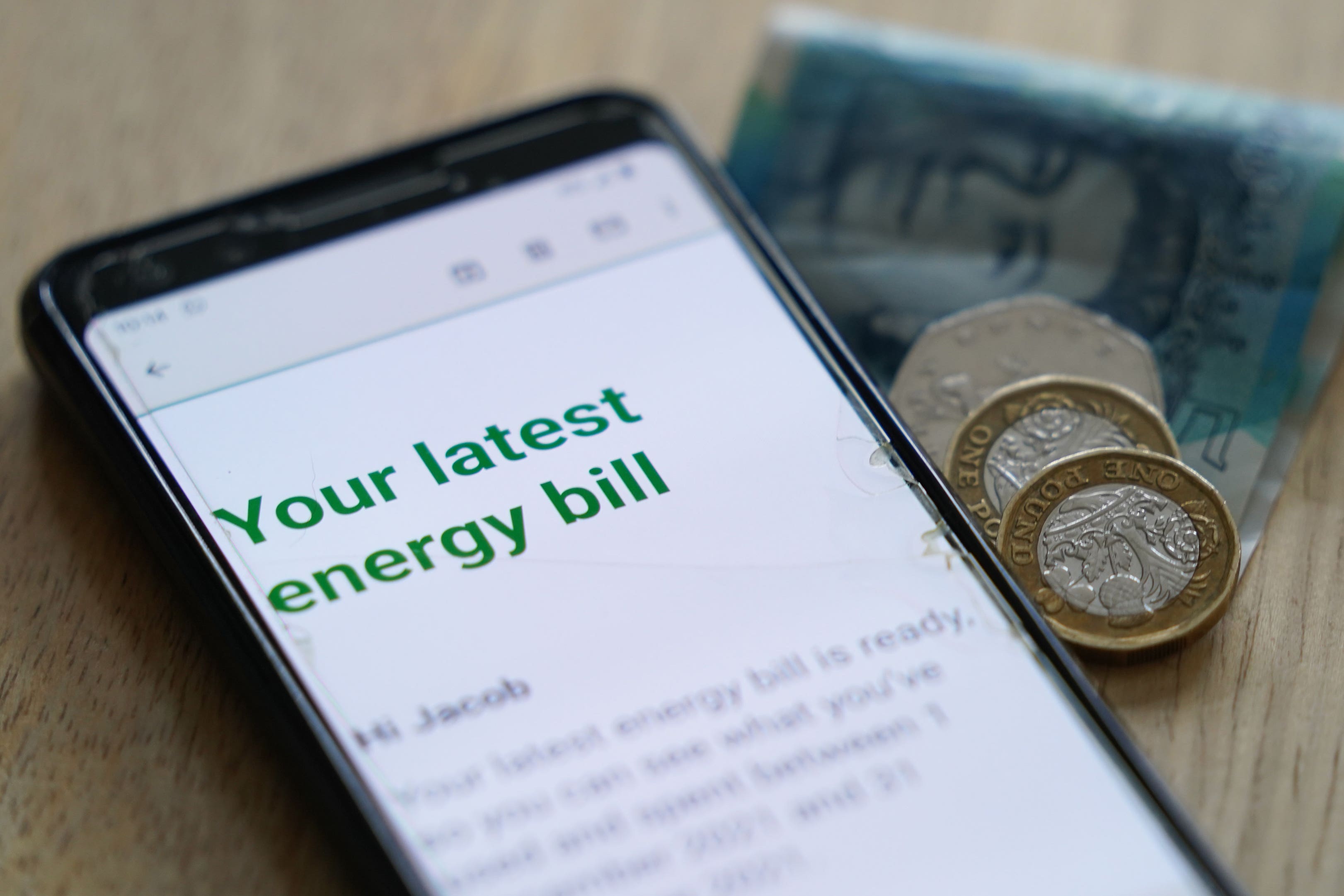Household energy bills to rise from April, Chancellor confirms
The energy price guarantee will continue for a further 12 months from April, but the cap will rise from the current £2,500 to £3,000 per year.

Help with energy costs has been extended for all households, but at a less generous level, meaning millions will still face higher bills, Chancellor Jeremy Hunt has confirmed.
The Chancellor used his autumn statement to announce that the energy price guarantee will continue for a further 12 months from April, but will rise from the current £2,500 to £3,000 per year for the average household.
This will coincide with the £67 monthly payments that make up the Government’s £400 rebate to all households to offset higher energy bills ending from March.
Mr Hunt said that with prices forecast to remain “elevated” through next year, this would still mean an average of £500 support for every household.
However, the plan only caps the cost per unit that households pay, with actual bills still determined by how much energy is consumed.
Mr Hunt also announced additional cost-of-living payments next year for the most vulnerable, of £900 to households on means-tested benefits, £300 to pensioner households, and £150 for individuals on disability benefit.
An additional £1 billion of funding would enable a further twelve-month extension to the household support fund, helping local authorities to assist “those who might otherwise fall through the cracks”.
Households who use alternative fuels such as heating oil and LPG to heat their homes will see their support doubled from £100 to £200, which Mr Hunt said would be delivered as soon as possible this winter.
The average annual household energy bill rose from £1,971 to a frozen £2,500 from October 1 under the energy price guarantee introduced by former prime minister Liz Truss.
The cap, limiting the price companies can charge customers per unit of energy they use, was to have lasted for two years from October 1.
Mr Hunt had already announced that it would end at its current level after six months, after which more targeted help would be provided to the most vulnerable.
Simon Francis, co-ordinator of the End Fuel Poverty Coalition, said: “The Chancellor has now condemned seven million UK households to fuel poverty this winter.
“The rise in the energy price cap from April next year could see this figure rise to 8.6 million households.
“We are already seeing the horrific impact of living in cold damp homes on children, the elderly, disabled and those with illnesses ranging from cancer to asthma.
“Even with the additional funding pledged to the NHS and social care system today, it risks being overwhelmed by the energy bills crisis and millions will suffer.
“The Chancellor could have raised all the money required to save the public from fuel poverty this winter through a more comprehensive windfall tax.
“Instead, he has chosen to protect the profits of oil and gas firms over protecting people’s lives.”
Sarah Coles, senior personal finance analyst at Hargreaves Lansdown, said: “The new energy support package will come as something of a relief for average earners, who were worried they might be left out in the cold.
“The new package, from April, will keep bills at £3,000 for average users, protecting them from a rise to as much as £3,700.
“This still leaves them with a horrible mountain to climb.
“In March this year we were paying an average of £1,277 on our energy bills, so we’ll have to find almost two and a half times more cash to pay our bills within 13 months.
“The fact that this comes on top of so many other price rises means life is going to get even tougher next spring.”
Adam Scorer, chief executive at National Energy Action (NEA), said: “An average bill of £3,000 from spring is an increase of 40% from current record levels, given that the Government has ceased the support currently provided by the energy bill support scheme, yet energy bills are up by a staggering 130%.
“Sadly, this means there is now no end in sight to the energy crisis for struggling households.
“For most, it looks as if it will get even harder.
“With deficit budgets and nothing left to ration, too many could fall further into overwhelming debt or go without energy entirely, to the acute detriment of their health and wellbeing.
“Even those who will receive cost-of-living payments will find it practically impossible to sit on this cash payment and only channel this money towards soaring energy bills.”
Bookmark popover
Removed from bookmarks